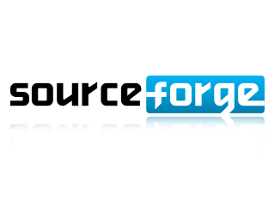Two down and one to go for the big Linux and FOSS conferences for the winter of 2016.
Today linux.conf.au 2016 gets cranked up for a five day run in the land down under for a big tent show where registration is sold out. This comes on the heels of another big show which folded its tent last night, FOSDEM 2016, the two day event that ran this weekend in Brussels. Both of these came after the most hyped SCALE ever — and evidently rightfully so. The first-of-the-year Linux and FOSS lovefest vacated the Pasadena Convention center a little over a week ago, not to return until March 2-5, 2017, a very late date for that event.
As the big winter events get entered in the record books, organizers of other conferences are already getting cranked-up for a full slate of events scheduled for this spring, so anyone who missed the chance to hobnob and rub shoulders with like-minded FOSS folks this winter need have no regrets, because a Linux or FOSS festival is certain to be coming to your neck of the woods soon.
Christine Hall has been a journalist since 1971. In 2001, she began writing a weekly consumer computer column and started covering Linux and FOSS in 2002 after making the switch to GNU/Linux. Follow her on Twitter: @BrideOfLinux





 This is the second time in three years that IT-oLogy’s longest running conference has been cancelled. In 2014 the event was cancelled, evidently due to logistical problems as IT-oLogy was in the process of launching the first
This is the second time in three years that IT-oLogy’s longest running conference has been cancelled. In 2014 the event was cancelled, evidently due to logistical problems as IT-oLogy was in the process of launching the first 
 Linux Foundation adopts plantation model: The biggest FOSS story this week came on Wednesday when free software activist and Linux kernel developer Matthew Garrett made public that on last Friday the Linux Foundation had
Linux Foundation adopts plantation model: The biggest FOSS story this week came on Wednesday when free software activist and Linux kernel developer Matthew Garrett made public that on last Friday the Linux Foundation had 

 Is Ubuntu the new Novell? It probably wasn’t news to anybody when Microsoft failed to renew it’s deal with SUSE when it expired at year’s end. Many with long memories will remember that way back when SCO was still a viable company, Microsoft inked a deal with Novell, which was then the proud new owner of the SUSE Linux distro. Among other things, the deal gave SUSE users a free pass against getting sued by Microsoft for infringing any of its patents. As part of the deal, Microsoft purchased tons and tons of SUSE support contracts to sell to enterprise customers who might need to keep a Linux machine or two running, which were reportedly given away. Mainly, Microsoft was using SUSE as its official Linux distro, and as a testing ground for Microsoft’s attempts to get Windows to work and play well with Linux.
Is Ubuntu the new Novell? It probably wasn’t news to anybody when Microsoft failed to renew it’s deal with SUSE when it expired at year’s end. Many with long memories will remember that way back when SCO was still a viable company, Microsoft inked a deal with Novell, which was then the proud new owner of the SUSE Linux distro. Among other things, the deal gave SUSE users a free pass against getting sued by Microsoft for infringing any of its patents. As part of the deal, Microsoft purchased tons and tons of SUSE support contracts to sell to enterprise customers who might need to keep a Linux machine or two running, which were reportedly given away. Mainly, Microsoft was using SUSE as its official Linux distro, and as a testing ground for Microsoft’s attempts to get Windows to work and play well with Linux.
